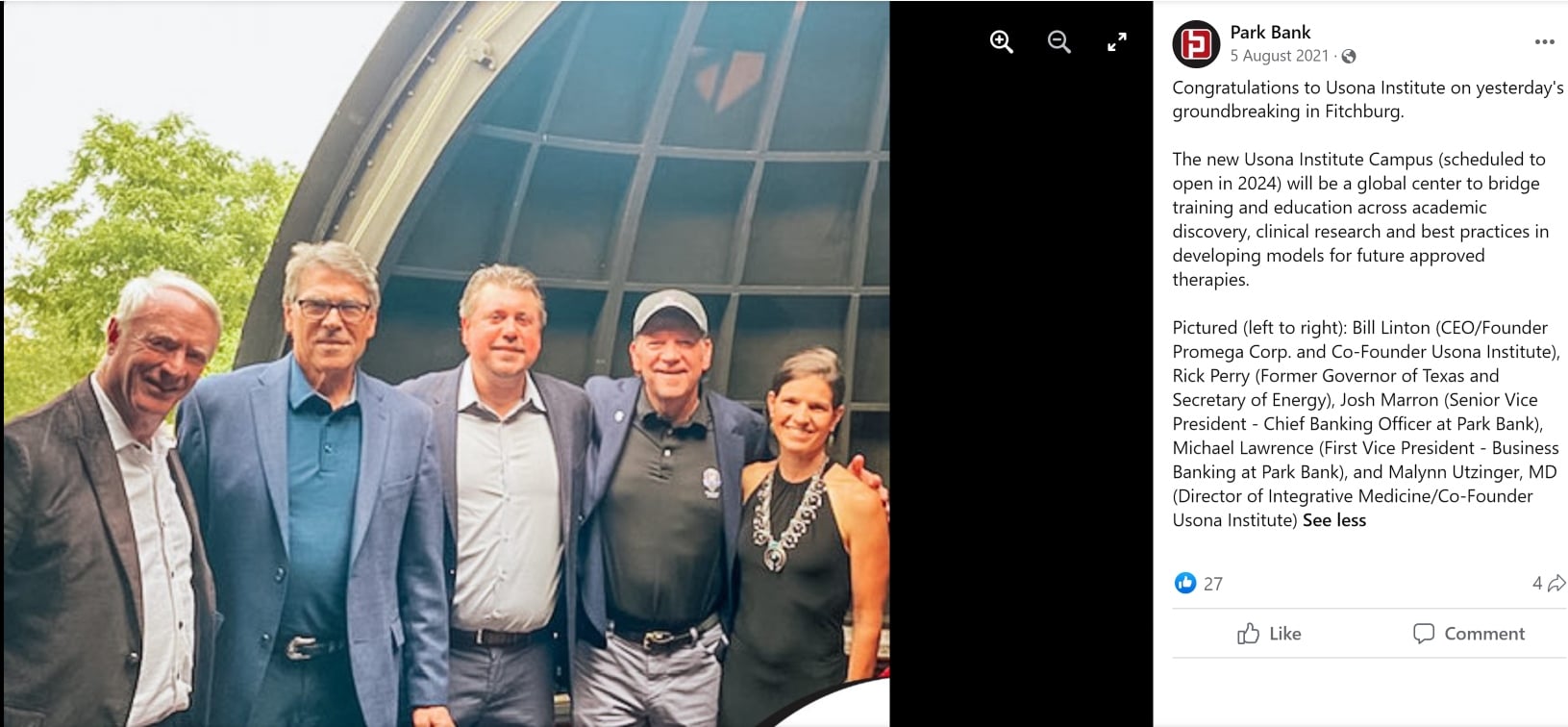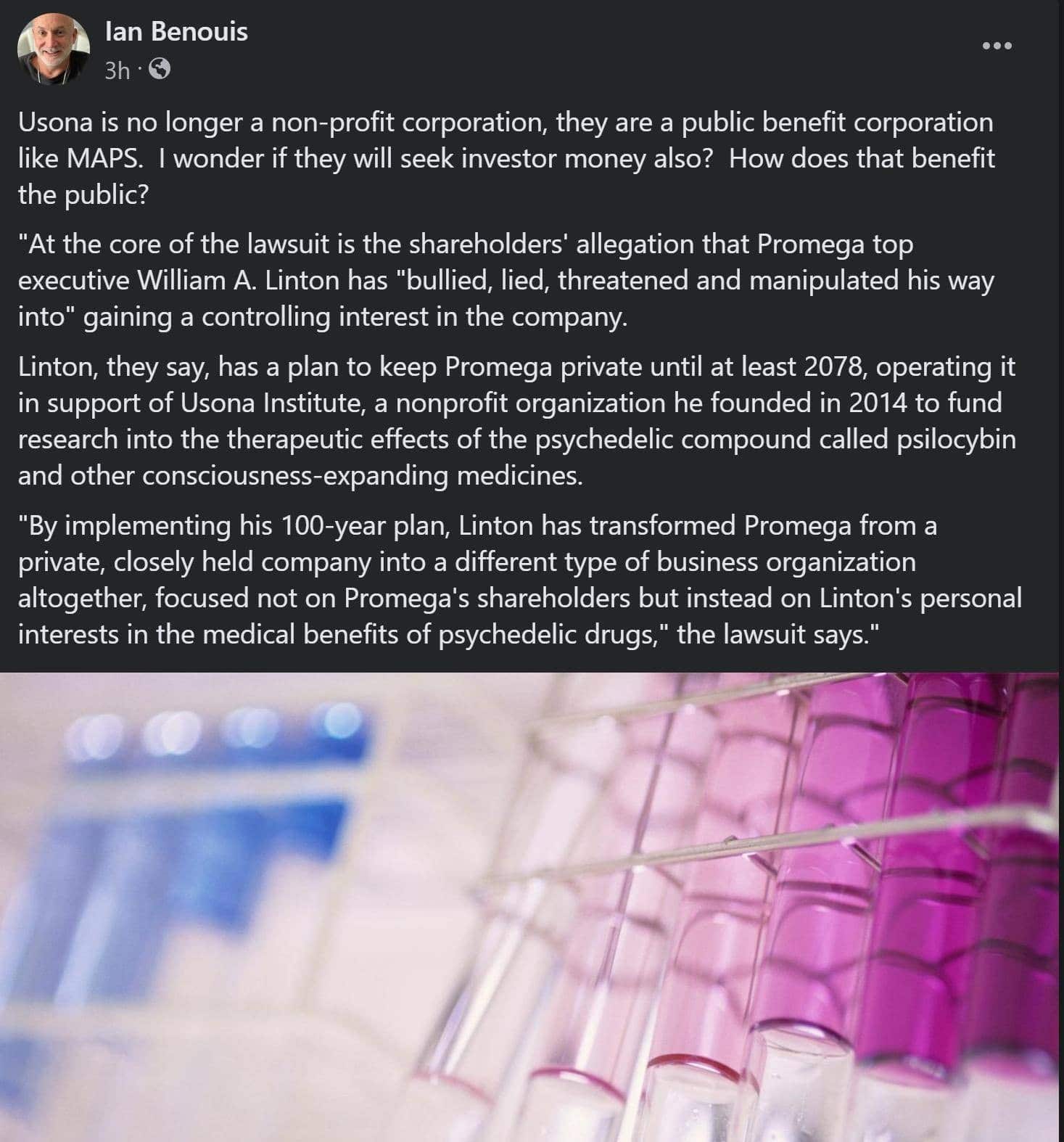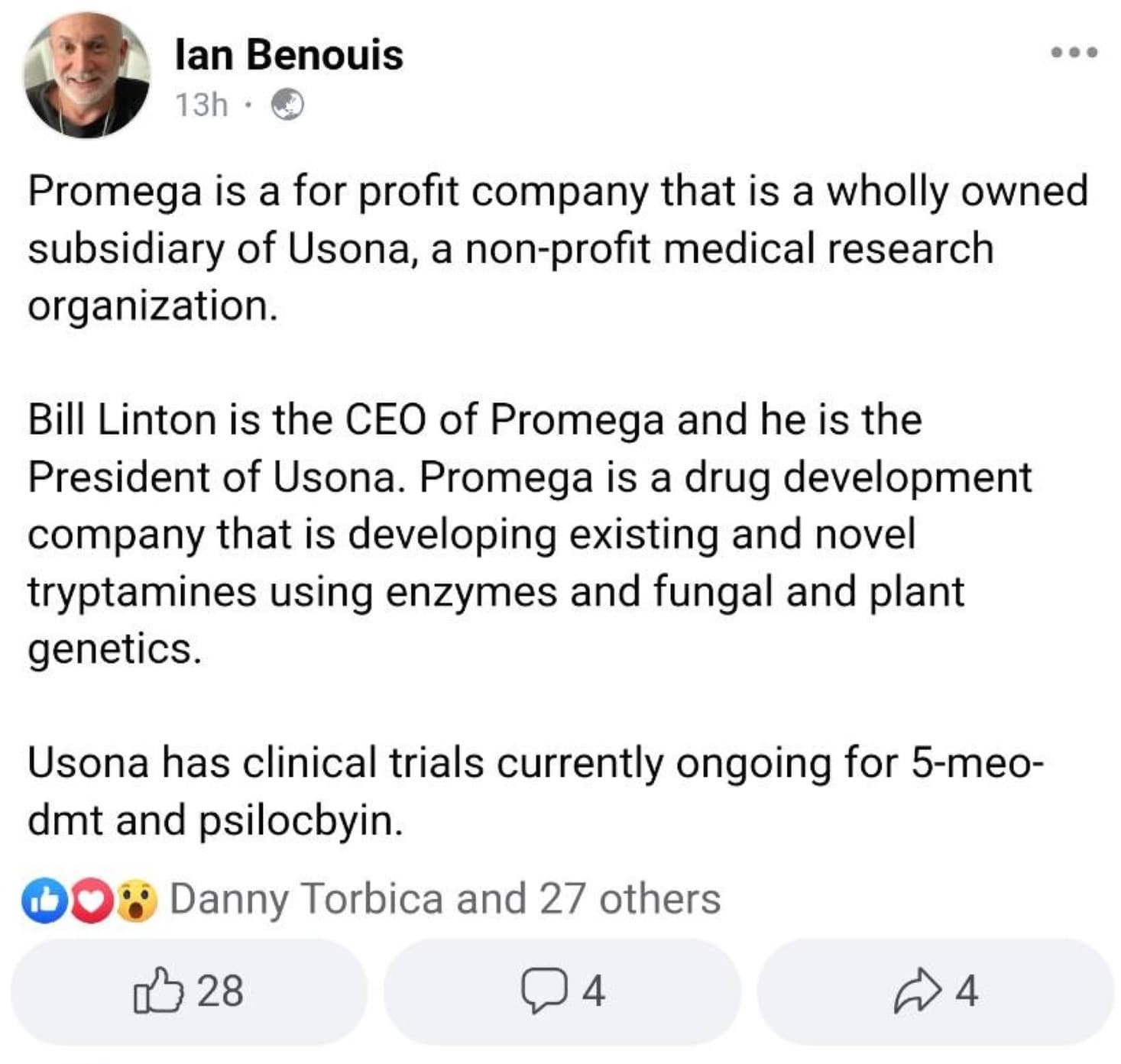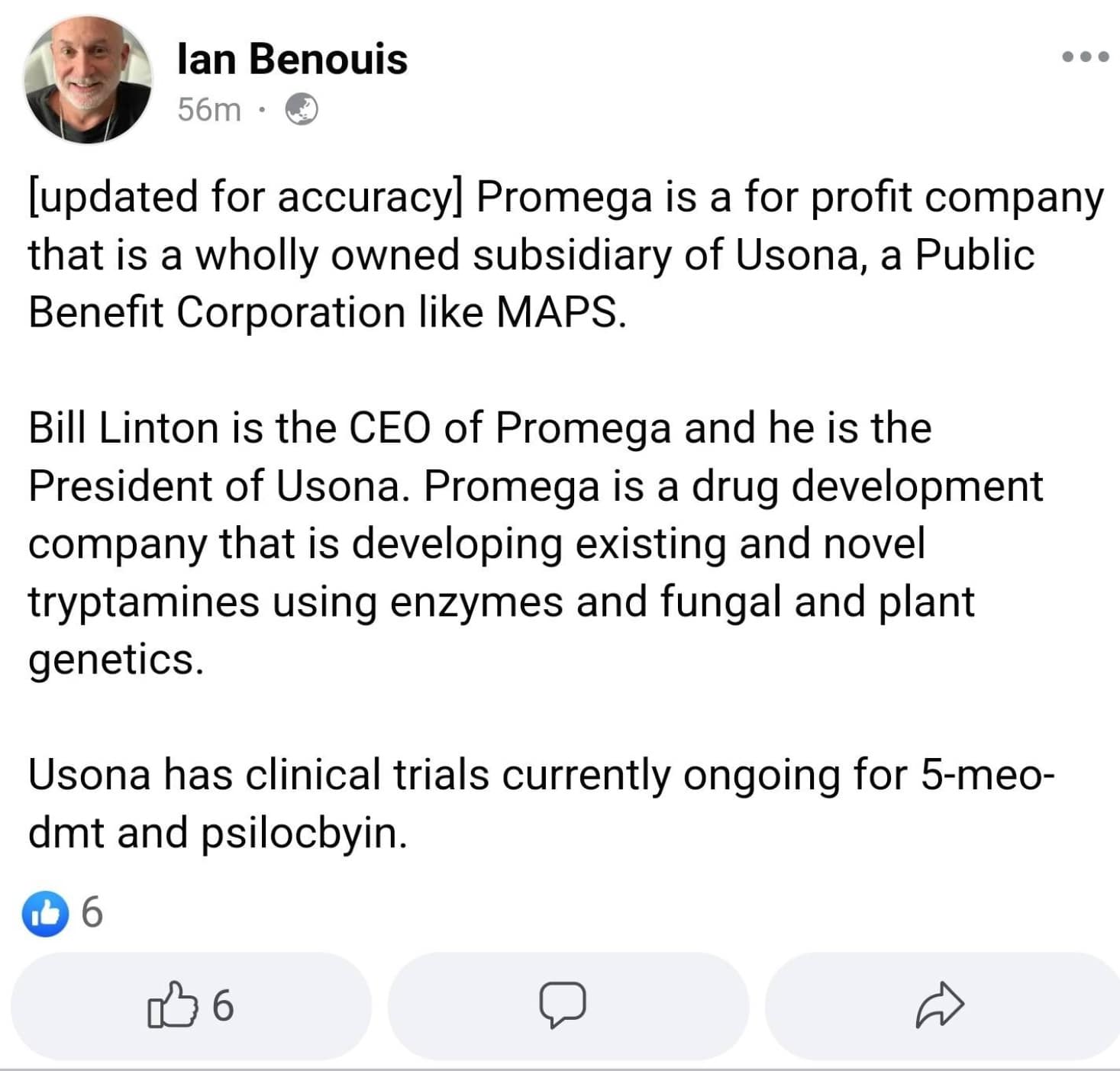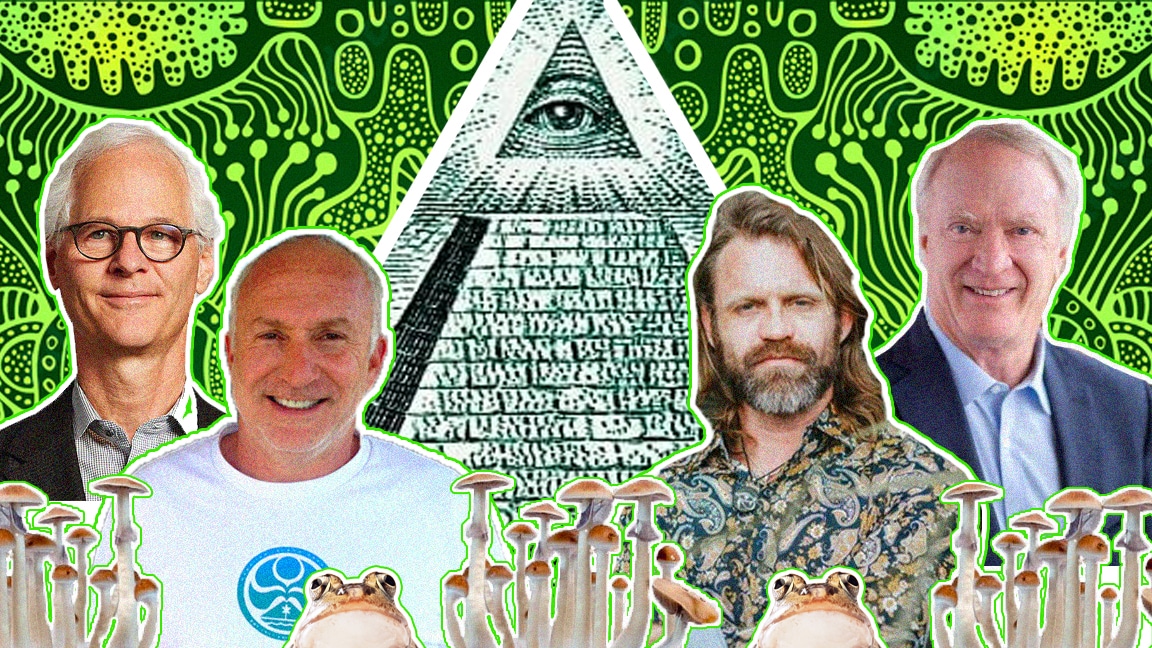
Russell Hausfeld contributed to the reporting of this story.
This is Part 4 of Psymposia’s investigation into the Church of Psilomethoxin. Click the links for Part 3, Part 2, and Part 1.
In July of 2022, The Intercept reported on politicians like avowed anti-anti-fascist Dan Crenshaw and MAGA figurehead Matt Gaetz — as well as Democratic Socialist Alexandrea Ocasio-Cortez — rallying around legislation aimed at researching psychedelics for PTSD in veterans. While bipartisan efforts to “support the troops” are nothing new, the fact that politicians were advocating to dose veterans with psychedelics generated a relative flurry of media attention.
The strategy of focusing on veterans, at least in the context of psychedelic medicalization, originated with the Multidisciplinary Association for Psychedelic Studies (MAPS). However, having demonstrated a degree of “success” with this strategy, MAPS is no longer alone in taking this approach. Whether it’s corporations like Wesana Health and Unlimited Sciences using Marine Corps scout snipers to promote psychedelics for understudied interventions (such as treating traumatic brain injuries) or former Seal Team 6 members creating advocacy organizations like Veterans Exploring Treatment Solutions (VETS), it’s become increasingly commonplace to find groups emphasizing their work with veteran populations in order to open Republican wallets and get Uncle Sam off their backs.
In 2019, MAPS founder Rick Doblin said the quiet part out loud to Boston magazine:
“There has been this conservative crossover. We got a pledge recently of $2.7 million from Elizabeth Koch, who is Charles Koch’s daughter, and we have gotten donations from Rebekah Mercer. We have managed to have incredibly good coverage on Fox News. We have had coverage on Breitbart, the Daily Caller, military websites, Navy Seal websites. I think the choice of working with PTSD and MDMA with a lot of veterans has been fundamental to our success. It’s insulated us from this ‘psychedelics, left-wing, counterculture hippies’ thing that we have taken 50 years as a culture to get past.”
In a recent interview with Martin Ball (a longtime 5-MeO-DMT practitioner who has admitted to vomiting on clients and engaging in other harmful practices), Church of Psilomethoxin (CoP) co-founder Ian Benouis, who is also a veteran, revealed that “supporting the troops” is a core component of his legal strategy for establishing entheogenic churches. Benouis’ statements on Ball’s podcast indicate that some of his legal advice for entheogenic churches involves operating in areas with conservative laws restricting government interference with religious practices (places like Florida and Texas), and maintaining public relation strategies which he believes make the government less likely to target the churches.
Benouis said on the podcast, “We ask all our clients, ‘Are you working with veterans?’ And if they say ‘No,’ we ask ‘Why not?’”
He explained that, in his opinion, the government doesn’t want to deal with the optics of busting a church that has helped out veterans. Demonstrating this strategy, CoP launched its church on Veteran’s Day 2021 and claimed in its Welcome Booklet that “veterans played a major role in assisting [Church] efforts” in bioassaying its sacrament. In other words, the Church claims to have used veterans as human guinea pigs to test its unverified, purportedly-novel drug.
It’s currently unknown whether or not Benouis’ “shield of veterans” strategy might deter zealous federal prosecutors from taking a closer look at CoP. However, the recent controversy surrounding the Church and its psilomethoxin-free mushrooms has led the Church to claim it is being victimized — not as a result of religious persecution by the state, but by “psychedelic capitalists.”
In its April 13 response to the Williamson and Sherwood preprint (a recent manuscript detailing chemical analysis which failed to detect any psilomethoxin in a sample of the Church’s sacrament), the Church claims that the preprint presents:
“…a textbook example of the evils and horrors of psychedelic capitalism. These are the same evils and horrors many have speculated about, but had not previously seen, at least to this degree.”
What, exactly, are these “evils and horrors?” We don’t know, as the Church fails to provide any specifics in its response (beyond misidentifying Usona as a for-profit institution and presenting the specter of social media posts about an unrelated company, Panacea Plant Sciences, filing psilomethoxin patents).
There truly are horrors of capitalism — and Psymposia has covered a number of the intersections of capitalism and psychedelics. Things like ATAI Life Sciences founder and COMPASS Pathways megafunder, Christian Angermayer’s, inclusion on the Presidential Advisory Committee for the murderous Rwandan dictator, Paul Kagame; the relationship and sheer volume of connections between psychedelic corporations and extractive industry; and the industry-wide silence in the face of therapist abuse caught on camera, to name just a few.
With regards to how they are victims of “psychedelic capitalism,” the Church vaguely gestures at “capitalist gatekeepers” with “monetary interests” who desire to “oust” the Church in service to “protecting their IP interests and exclusive control over new psychedelic compounds or any and all aspects of psychedelic therapy,” but fails to provide specifics.
There appear to be at least two glaring problems for CoP within this argument.
First, neither the Church nor anyone else has identified “new psychedelic compounds” for gatekeeping in any of the Church’s mushrooms — a point which the Church (now) freely admits.
Second, setting aside questions about the lack of safety and efficacy of psychedelic-assisted therapy, the Church is a religious organization, not a provider of medical services. When Psymposia asked Church co-founder Greg Lake if CoP considers what it does to be psychedelic therapy, Lake replied, “No I don’t… I don’t at all consider it, you know, psychedelic therapy.” As such, even if a company were able to exercise exclusive control over psychedelic therapy, it seems unlikely that would impede Church practices.
If someone were interested in offering a coherent critique of the Usona Institute and the capitalist interests that intersect with the organization, they might choose to focus on things like the shareholder oppression lawsuit that was filed against President and Co-Founder of Usona, Bill Linton, and his biotech firm, Promega Corporation. Among other things, the lawsuit alleged that Linton was inappropriately discounting the share price of Promega in order to operate Promega “for himself personally, Usona, and what he calls ‘humanity at large.’” Linton and Promega settled the suit for over $300 million, after the trial judge floated the idea of dissolving Promega in order to pay back shareholders if the parties couldn’t reach an independent settlement.
Additional questions about Usona might focus on longtime extractive energy executive Carey Turnbull’s involvement in the organization. In addition to his time as President and Treasurer of the non-profit Heffter Research Institute, Turnbull has fought against patents filed by COMPASS Pathways via his organization Freedom To Operate. However, as information has come to light about Turnbull’s role as founder and CEO of the for-profit Ceruvia Life Sciences — and Ceruvia’s attempts to develop and patent a synthetic psilocybin product, SYNP-101, to treat obsessive-compulsive disorders, cluster headaches, and alcohol use disorders — people have questioned the degree to which Turnbull’s opposition to COMPASS’ psilocybin patents stemmed from his own financial interests rather than out of service to public interest. Attorney Matt Zorn has described some of Turnbull’s commercial efforts as “Hot Psilocybin Patent Garbage.”
Taken further, someone might wonder if Usona’s arrangements with various research teams could present bottlenecks or strangleholds on developments related to psilocybin-assisted therapies, particularly with regards to data or intellectual property. One could even speculate or raise questions about what actually took place behind the scenes at the “gold shovel” Usona groundbreaking, where Promega executives, Usona personnel, bank presidents, and politicians like Rick Perry found themselves literally shoulder-to-shoulder. There’s certainly no shortage of questions that could be asked about what happens at the intersection of right-wing politicians, financial executives, and understudied medical interventions involving boundary-dissolving, suggestibility-enhancing drugs.
However, none of these lines of inquiry present meaningful capitalist motivations for two chemists, employed by Usona, to analyze the Church’s sacrament. It seems far more likely that the chemists — whose work has included synthesizing and studying novel psilocybin analogs — became interested in the claims the Church was making about the novel biosynthesis of an otherwise labor-intensive and fragile molecule. Alex Sherwood, listed as the corresponding author on the preprint manuscript, declined to comment for this article, telling Psymposia he’d prefer to let the science speak for itself during the preprint’s public peer-review period, and indicating there will be forthcoming updates prior to submitting the manuscript for formal peer-review.
It appears that on April 22, CoP Co-Founder Ian Benouis became aware of the lawsuit against Linton and Promega, taking to his Facebook to share a 2016 news article about the lawsuit and writing, “Usona is no longer a non-profit corporation, they are a public benefit corporation like MAPS. I wonder if they will seek investor money also? How does that benefit the public?” In a Facebook post the prior day, Benouis wrote (inaccurately), “Promega is a for profit company that is a wholly owned subsidiary of Usona, a non-profit medical research organization.”
In a subsequent post, Benouis again inaccurately wrote, “[updated for accuracy] Promega is a for profit company that is a wholly owned subsidiary of Usona, a Public Benefit Corporation like MAPS” (square brackets in the original).
It is unclear why Benouis now believes that Usona is no longer a non-profit, as the Usona website FAQ states, “Usona is structured as a 501(c)(3) non-profit medical research organization. An MRO is a specific type of 501(c)(3) non-profit organization, designed to be engaged in the continuous active conduct of medical research.”
It is similarly unclear why Benouis believes Promega is a “wholly owned” subsidiary of Usona in light of the fact that — following the 2020 settlement of the shareholder oppression lawsuit — Eppendorf AG, a German life sciences company, acquired a 13.7% stake in Promega. A stake which was explicitly acknowledged in Eppendorf’s 2020 and 2021 annual reports.
Psymposia contacted Usona to inquire whether its personnel or any partners of Usona are attempting to commercialize psilomethoxin; the synthesis methods the church claims to use to produce psilomethoxin; or any intellectual property and/or synthesis methods related to the production of psilomethoxin or related compounds. Psymposia also inquired about Usona’s non-profit status and relationship to Promega.
In response to Psymposia’s inquiries, Usona spokesperson Karen Burkhartzmeyer wrote “Promega Corporation is a ‘C-Corporation’ domiciled in Wisconsin. A life science company founded in 1978, Promega is private and independent.” With regards to Usona’s non-profit status, Burkhartzmeyer wrote, “Usona Institute is a 501(c)(3) medical research organization, legally independent of Promega with its own board of directors….founded in 2014.” And finally, replying to the questions about psilomethoxin, Burkhartzmeyer concluded, “Neither organization has any interest in pursuing development or commercial activities regarding psilomethoxin.”
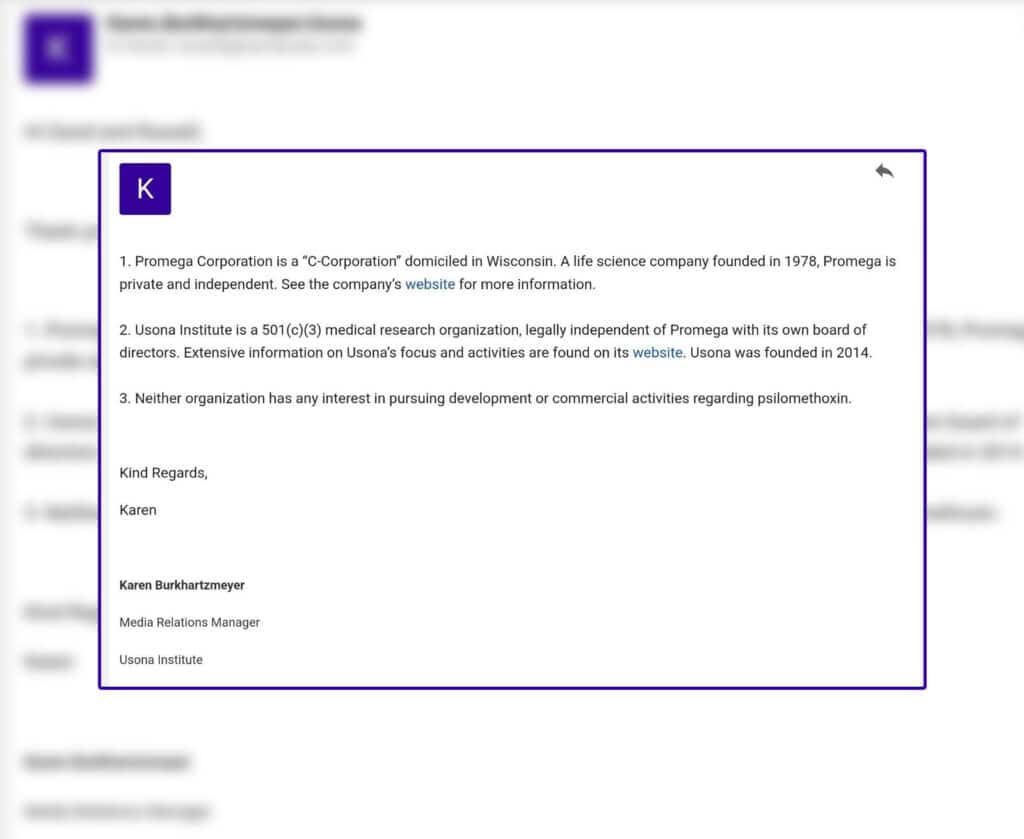
This, in turn, brings us to the question of how an organization making such dubious and demonstrably incorrect claims was able to gain so much traction within psychedelic spaces. The next article in this series will explore how psychedelic media organizations facilitate the promotion of questionable claims and misinformation by groups like the Church of Psilomethoxin and ultimately contribute to a space populated by charlatans and bad actors.
Hey! Before you go… Psymposia is a 501(c)(3) non-profit media organization that offers critical perspectives on drugs, politics, and culture. We strive to ask challenging questions, and we’re committed to independent reporting, critical analysis, and holding those who wield power accountable.
Our perspectives are informed by critical analysis of the systemic crises of capitalism that have directly contributed to the unmitigated growth of addiction, depression, suicide, and the unraveling of our social relations. The same economic elite and powerful corporate interests who have profited from causing these problems are now proposing “solutions”—solutions which both line their pockets and mask the necessity of structural change.
In order for us to keep unpacking these issues and informing our audience, we need your continuing support. You can sustain Psymposia by becoming a supporter for as little as $2 a month.
